
Copyright © 2024 · OurPublicRecords.org · All Rights Reserved

Free New York Unclaimed Money Lookup
We receive referral fees from partners (advertising disclosure)
The information we provide you is free of charge and a result of extensive research by our home warranty experts. We use affiliate links on our site that provide us with referral commissions. While this fact may not influence the information we provide, it may affect the positioning of this information.
The information we provide you is free of charge and a result of extensive research by our home warranty experts. We use affiliate links on our site that provide us with referral commissions. While this fact may not influence the information we provide, it may affect the positioning of this information.

Find out what happens to all types of unclaimed property and the best ways to claim yours in our ultimate guide to New York’s unclaimed money.
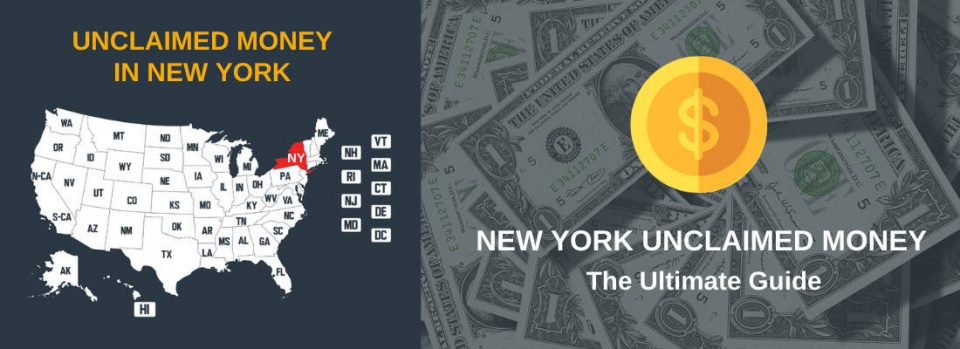

Known for New York City and other big towns, New York has one of the largest populations of all states in the country. That might explain why organizations report so much in unclaimed property every year. When a property goes unclaimed, the Office of the New York State Comptroller will accept a report from the organization and place the money in its unclaimed property database. As this database is available online, you can search it for your property and then claim it.
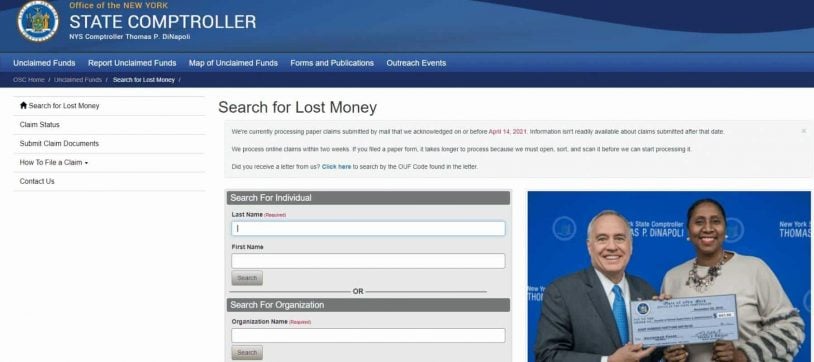
As of May 2021, New York has more than $1 billion in unclaimed funds. The comptroller helps return more than $1 million to the people of the state every day. Our guide will show you the easiest ways to claim your money and get a check. You also have the option of getting a prepaid debit card with your money on it. Our guide to unclaimed money in New York will also go over some other reasons you might claim a property and how to use the New York system.
You might wonder what unclaimed money is because you heard an ad on the radio or saw one on TV. New York uses the term “unclaimed money” to describe a type of property or asset worth any amount of money that is dormant. Organizations can refer to your asset as dormant after only one year without any activity on your part or up to three or five years.
Some organizations may even give you more time to bring your account current.
One example of unclaimed property in New York is a security deposit. Most landlords charge a security deposit that might be equal to one month of your rent. New York requires that landlords return the funds to their tenants quickly after they move but allows them to keep the money to cover damage to the property. You may pay a similar deposit when you have power or another utility turned on at your new home. If you do not get back your deposit, you can check the New York system. Most organizations and companies will contact the comptroller if they attempt to send a check to you but cannot find your new address.
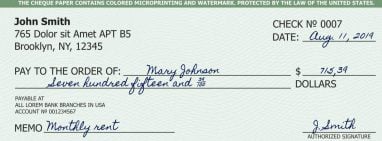
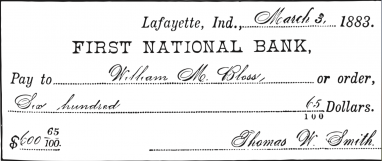
Insurance checks are also found in the New York database. The most common reason why you wouldn’t get an insurance check is that you didn’t know the insurer had one for you. People can take out insurance policies and name a beneficiary without informing that person. The insurer may not have an address for you or have an address that is no longer valid. Insurers can also have money for you after you were in an accident caused by a reckless driver or if you had a policy that covered your home and filed a claim. The system has many insurance checks available for those who suffered major damage due to Hurricane Sandy.
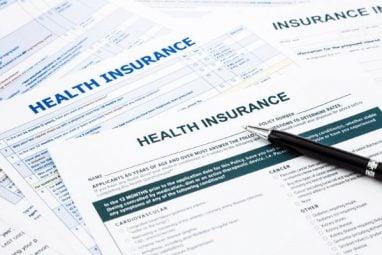
New York also has estate proceeds listed in its system. When someone dies in New York and leaves a will, their executor or administrator will work with the probate court to follow their last wishes. If someone dies without leaving a will, their family can go through probate to handle their final bills and give their property to others. You may find that a New York estate left you stocks and bonds or a bank account. The database allows you to claim your money.
You may want to check for court funds, too. New York is one of a small handful of states that will occasionally require a bond during a court case. This can include the bond put up to ensure that an individual will appear in front of the court on a criminal charge and funds that you put up until the court makes a final decision. Though you can usually work with the court to get your money returned promptly, New York courts will list your funds in the online system if you do not get your money.
As of May of 2021, New York has more than $16.5 billion in unclaimed assets. This is due to the large number of people who live in the Empire State along with the large number of employers located there. More than $1 million of that money goes back to locals every day. We recommend checking some other databases on the web as there are more than $42 billion in unclaimed assets available through other states and sites.
The Office of the New York State Comptroller is the best place to find your unclaimed money. You can use the official website to find all types of abandoned property in the Empire State. We outlined the steps below that you need to complete to look for your assets.
Step 1: Head to the Search for Lost Money page on the New York Comptroller website.

Step 2: Scroll down to find the search box. We recommend that you search for assets that list someone with your last name as the owner. You can add your first name if you want to view fewer results. The “Search for Organization” box below the name search allows you to look for assets owned by a business.
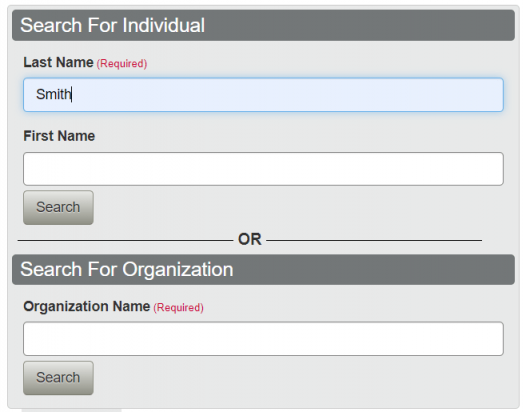
Step 3: View up to 250 matching results on a single page. When we used the name “Smith,” we got more than 5,000 results. You can click on “Share” to tell others what you found. New York lets you see both the address and name of the owner along with the name of the person or organization that reported the abandoned asset.
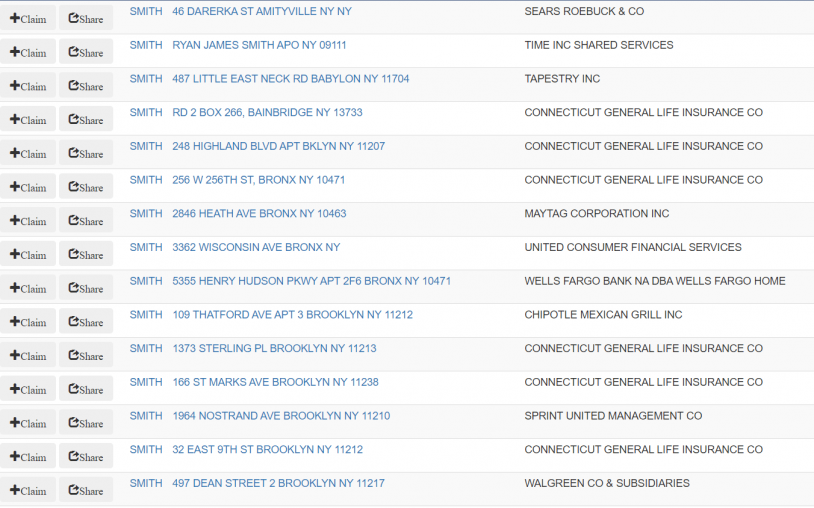
Step 4: Click on the gray “Claim+” button when you find an asset that belongs to you. You can only claim one property per click but have the chance to go back and claim more assets.
Step 5: Read over the information attached to the asset to make sure that you have the right to claim it. New York will tell you when the organization reported the money and the type of property that it is such as a paycheck or insurance check. You can also see if you lived at the same address associated with the listed owner.
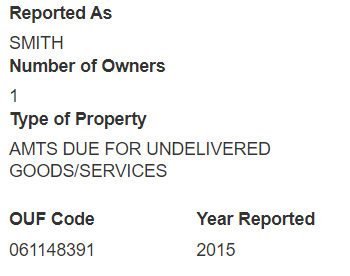
One of the best ways to claim an abandoned asset in New York is via the mail-in form. It features multiple pages and adds your information as you update it.
Step 1: Use the boxes on the mail-in form to add your personal information. This page appears as soon as you click on the “Claim+” button. It asks for your email address, home or mobile phone number, full name, and the organization’s name claiming on your behalf if there is one.
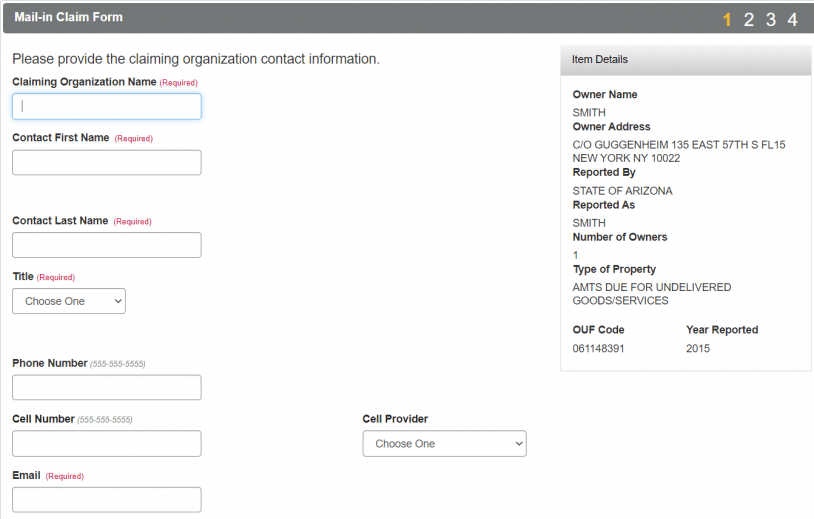
Step 2: Complete the confirmation step that shows your information is correct. This will take you to the final page that allows you to download a copy of your claim form. You’ll then need to print a copy and sign the bottom before mailing it to the comptroller.
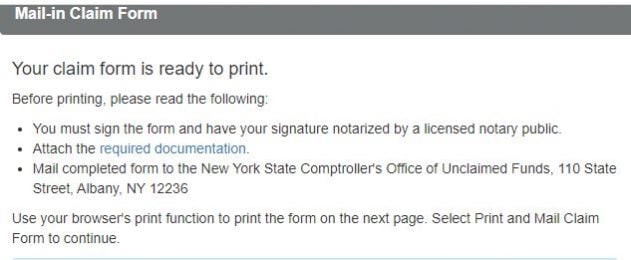
If you have any problems using the New York database or perform a search and find no results, there are a few tips that you can try.

There are many places online that help you look for and find abandoned assets in your name other than the New York system. A good place to start if you ever lived outside of the Empire State is Missing Money. Some states do not have the money or resources to create an unclaimed property database and work with Missing Money to list their assets. You can quickly search and choose to look through one or multiple states.
Government resources such as Department of Housing and Urban Development (HUD) are helpful. HUD offers support if you can’t make your loan payments and can help you buy a cheaper home or qualify for your loan. Once you work with HUD on your mortgage, you might get a refund check that you forget to cash. HUD can help you track down your check and learn about some of the more common scams dealing with mortgage relief.
Treasury bonds are a popular gift for kids. You might get a few from your family and plan to cash them in later and use the money for school. The U.S. Federal Investments website lets you track down bonds that you lost. All you need is your social security number, which the person who bought the bond will list. You can claim your bond, even if you lost track of it as a child.
Other sites that we encourage you to check out include:
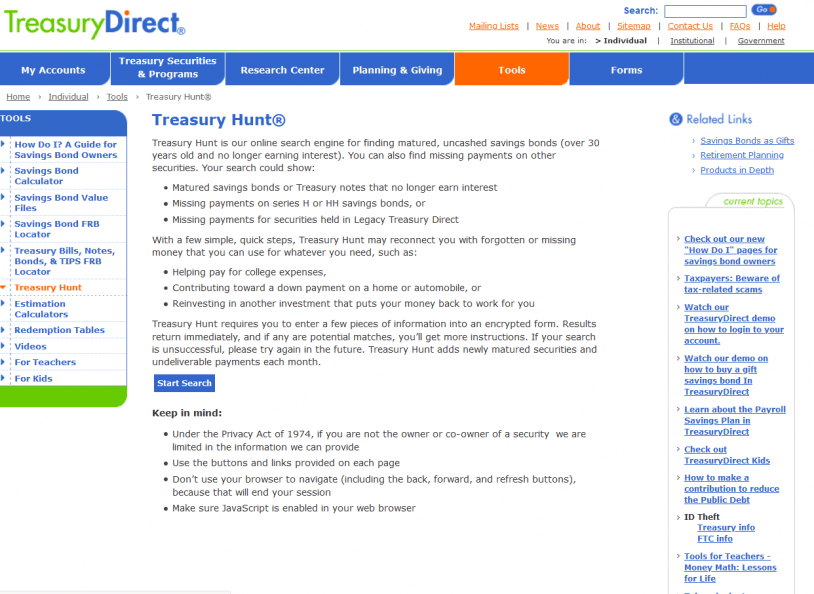
We recommend that you head to the official comptroller website when looking for unclaimed property laws in New York. This allows you to download or view the PDF guide that covers all the laws that the Empire State has for reporters.
Yes, New York uses different methods to find owners and reunite them with their property. The Office of Unclaimed Funds is a part of the comptroller’s office that is responsible for scheduling and holding events. They often run booths at fairs and attend popular events across the state. This office will occasionally send notices to any old addresses that they find to let owners know that they can claim old assets. If you get a notice, you can use the number on it to claim your money quickly.
New York gives you the option of using a mail-in claim or filing online. We recommend the mail-in form as it takes only minutes to print and submit. When you reach the final stage in the claim process, the website will give you the option of using an online claim. If the site finds that any of your information doesn’t match the information on the claim, it will block you from filing. This often happens when you file for a deceased’s property or as an individual who wants to claim a business asset. If the site blocks you, you’ll need to use the mail-in form.
Claiming assets in New York requires several types of documents, including proof that you’re the owner and proof of your address. You can use mail that came to your home or a copy of your driver’s license. If you need proof of your old address, you can use an old passport or a utility bill. The state will also accept tax records and legal papers. To prove that you’re the owner, you can submit anything you have that shows you owned the property such as an old bank register or stock certificate. Many forms of property do not require any proof that you’re the owner because the state already has it.
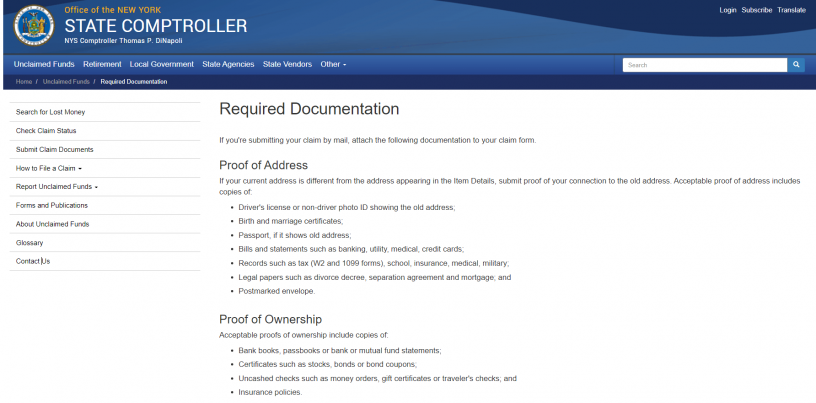
The Empire State works hard to process claims in as little as 30 days. When you use the online system, you can expect to get a check in around two weeks as long as the system accepts your claim. New York will often send you a letter or notice that lets you know if received your claim and has everything that it needs, which can give you some peace of mind. Though it can take up to six weeks to get a check, New York often only takes longer to process claims involving estates and deceased owners.
In addition to checks, New York now lets you choose to get your money on a prepaid debit card that has the MasterCard logo on it. You simply select this option when you file. The card will have a 16-digit code on the front and come with information on how you can set up your PIN. You do not need to worry about finding a place to cash a paper check or taking it to your bank. All websites and shops will accept the prepaid card, too.

Certain types of claims filed in New York will result in you getting a 1099 form from the state. You need to report this form when you file your taxes, which shows that you made money. This is common when you receive property with a value of $600 or more, but it does not apply to all types of assets. You will usually only get a 1099 form if you file a claim for stocks or other types of securities.
A location finder is someone who searches the New York unclaimed property system for your assets. They will then contact you and request payment in exchange for filing your claim and helping you get your money. New York requires that location finders adhere to strict rules, including sending their claim forms through the mail and working directly with the owner. A finder must have a contract with the owner and agree to charge no more than 15% of the property’s value as their fee. The state requires a signed agreement between the two parties that states the finder has written authorization from the owner to complete the process.
Checking in regularly is one of the best ways to prevent your assets from becoming lost and listed in the New York database. It only takes a few minutes to log in and show the organization or institution that you are still around. You may want to move money from your checking to your savings account or take money out at an ATM. If your contact information changes, update it as soon as possible. This ensures that your account holders can get in touch with you.

With more than $15 billion in unclaimed assets, the odds are good that New York has some money that you can claim. Using the database is so easy that you can do it whenever you have a few minutes free at work or after the kids fall asleep. You can then get a paper check or request a prepaid debit card. Use our ultimate guide to unclaimed money in New York to get your assets as quickly as possible.
Disclaimer: OurPublicRecords mission is to give people easy and affordable access to public record information, but OurPublicRecords does not provide private investigator services or consumer reports, and is not a consumer reporting agency per the Fair Credit Reporting Act. You may not use our site or service or the information provided to make decisions about employment, admission, consumer credit, insurance, tenant screening, or any other purpose that would require FCRA compliance.

Copyright © 2024 · OurPublicRecords.org · All Rights Reserved